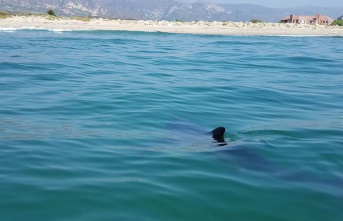February 24 marks the first anniversary of Russia's illegal invasion of Ukraine. In the past eleven months, the EU had therefore imposed various sanctions against the country, its oligarchs and political representatives. Including an entry ban. Austria is making an exception for the bloody anniversary: a delegation of Russian politicians and journalists is expected to attend the Parliamentary Assembly of the Organization for Security and Cooperation (OSCE) in the Hofburg in Vienna on February 24.
Among those present was Duma Chairman Pyotr Tolstoy, who said in an interview that he wanted to "bomb" Ukraine back to the 18th century. He also praised the "denazification measures" taking place there. He is accompanied by Leonid Slutsky, who spoke out in favor of executing the prisoners of war from the Azov steelworks in Mariupol. Another emissary has been indicted by the US Department of Justice for international disinformation campaign and influence operations against the sanctions.
At OSCE events last year, the host countries Great Britain and Poland banned Russia from entering. However, the Austrian Foreign Ministry does not want to refuse the Russian delegation the necessary visa and refers to the official headquarters agreement under international law. Because the OSCE has its headquarters in Vienna, Austria must allow all participating States to enter the country for events within the framework of the international organization. "This is not a matter of discretion, but an obligation for the host country," said a spokeswoman for Foreign Minister Alexander Schallenberg. She also made it clear that Austria had not invited the Russian envoys.
Austria's decision is nevertheless controversial. The Baltic States were critical. They pointed out that all delegates had voted for a Russian war of aggression and the annexation of Ukrainian territories. The EU sanctions should therefore also apply to them during the OSCE meeting. An unofficial letter said it was regrettable that the politico-moral arguments and the credibility of the OSCE and the EU were not taken into account.
The Ukrainian representative at the OSCE, Yevhenij Zymbaljuk, also expressed his criticism in the Austrian newspaper "Der Standard". He fears that the Russian delegates could put on a "propaganda show" at the FPÖ-hosted ball in Vienna's Hofburg, which is scheduled to take place on February 24. According to "Standard" information, seven delegates belong to the Putin party "United Russia", which is also close to the Austrian FPÖ, especially since the friendship agreement between the two parties in 2016.
The Austrian Ministry of Foreign Affairs admitted that the visas were only issued for OSCE events. A spokeswoman told the "FAZ" that everything else would be "acts incompatible with the headquarters agreement". Abuse could result in delegates being expelled from the country.
Ukrainian diplomat Tsimbalyuk said the OSCE should consider how to protect the people of Ukraine from the Russian attack.
At the beginning of the Ukraine war, Austria made it clear that it would remain neutral. One of the reasons for this is the Moscow Memorandum signed in 1955. In doing so, Austria has committed itself to "permanently practicing neutrality, such as that practiced by Switzerland". This military neutrality led to the Russian occupiers withdrawing from Austria after the Second World War, and Russia still recognizes the country's sovereignty to this day.
Nevertheless, a debate raged in the spring as to the extent to which Austria could and should fulfill its neutrality obligation. Because of its energy dependency, the country has always had a close relationship with Russia – and not just economically. After Russia annexed Crimea in 2014, Austrian politicians advocated easing EU sanctions against Moscow. After the poisoning of the British-Russian double agent Sergei Skripal, the Russian diplomats were allowed to stay in Austria, and a few months later their president was a guest at the wedding of the then foreign minister.
In March 2022, Austria "constructively abstained" from the European vote on arms deliveries. To date, the Alpine republic has not delivered any weapons to Ukraine.
Sources: "Der Standard", "Frankfurter Allgemeine Zeitung", Kurier.at,











